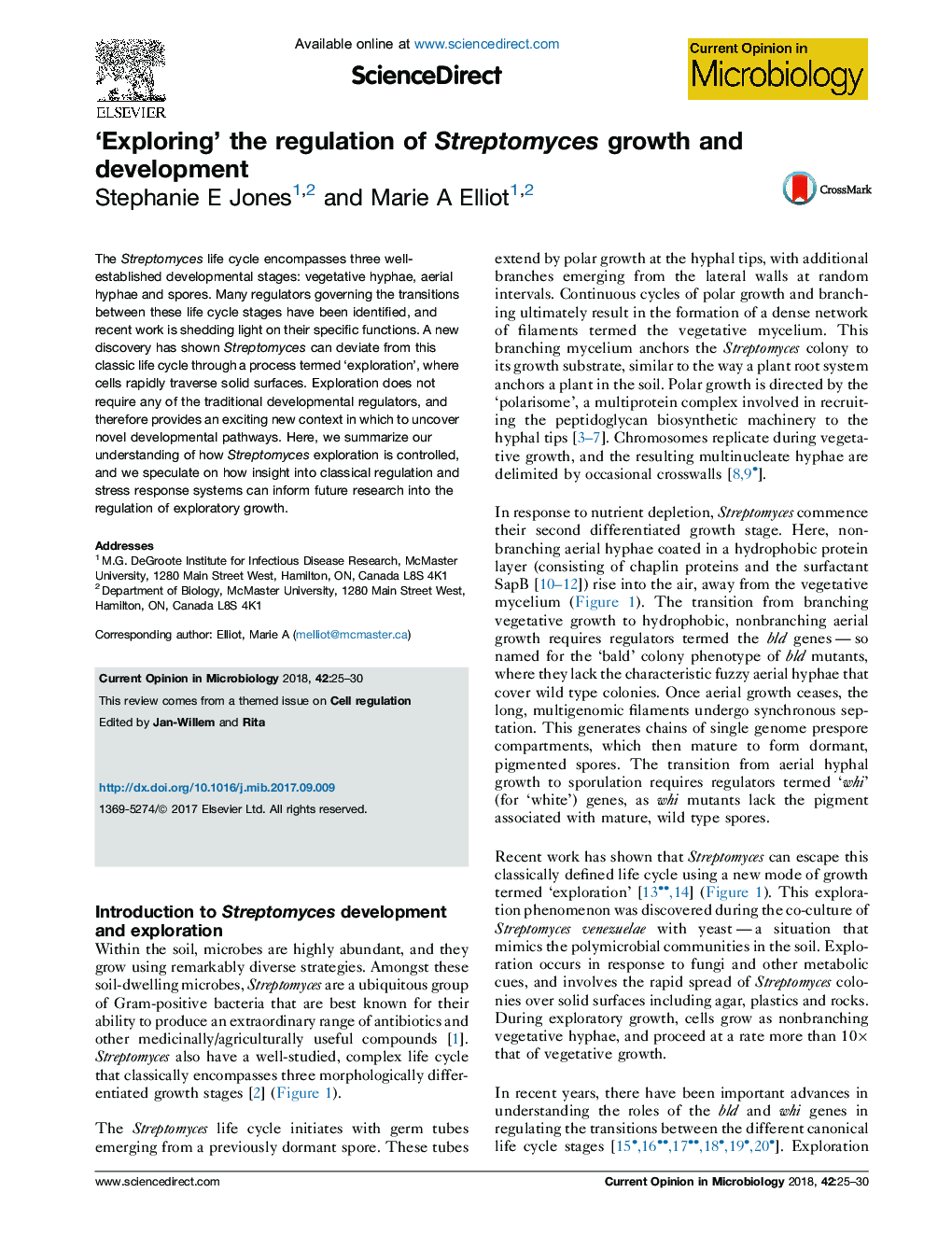| Article ID | Journal | Published Year | Pages | File Type |
|---|---|---|---|---|
| 5671914 | Current Opinion in Microbiology | 2018 | 6 Pages |
â¢Exploration provides Streptomyces with an effective new colonization strategy in the soil.â¢Exploration does not appear to require classical Bld and Whi developmental regulators.â¢Low glucose and abundant amino acids are required for exploratory growth.â¢High pH, caused by volatile organic compound release, is needed for exploration.â¢An effective alkaline stress response is tied to robust exploratory growth.
The Streptomyces life cycle encompasses three well-established developmental stages: vegetative hyphae, aerial hyphae and spores. Many regulators governing the transitions between these life cycle stages have been identified, and recent work is shedding light on their specific functions. A new discovery has shown Streptomyces can deviate from this classic life cycle through a process termed 'exploration', where cells rapidly traverse solid surfaces. Exploration does not require any of the traditional developmental regulators, and therefore provides an exciting new context in which to uncover novel developmental pathways. Here, we summarize our understanding of how Streptomyces exploration is controlled, and we speculate on how insight into classical regulation and stress response systems can inform future research into the regulation of exploratory growth.
